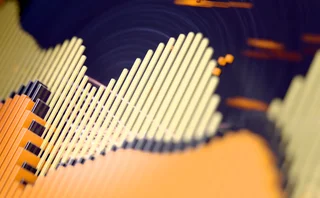
Technology vendor of the year: FIS Global
Risk Awards 2019: Software engineers respond to new challenges in traded risk

Life was simpler in the old days. Back then, when a market move pushed a derivatives position further in or out of the money, the consequence was an accounting gain or loss – at worst – which might disappear by the time of the next earnings statement. Today, following post-crisis reforms that seek to mitigate counterparty risks, a market move will attract margin or capital – costs that should be recognised up front.
“This shows how risks intersect and how banks need to get a grip on these interdependent measures. They need to manage them consistently and do it pre-deal,” says Sven Ludwig, managing director and global head of subject matter experts and advisory for cross-asset trading and risk at FIS Global.
This isn’t just a technical challenge, it is also an organisational one. To calculate regulatory risk measures, and to price trades correctly – using the full range of derivatives valuation adjustments, or XVAs – banks must tear down simplifying siloes between risk types, and close the gap between front-office, risk and finance functions.
“The calculation of XVA and counterparty credit risk are probably among the most demanding modelling challenges in finance in terms of the knowledge required of financial instruments and the need for a system that is flexible, maintainable and easy to extend,” says Dirk Talkenberger, head of valuation financial products, XVA and PVA at Frankfurt-based DekaBank. “To be successful, you need to bring together highly complex mathematics and highly complex system design, so you need good financial engineers and equally good software engineers. Our experience of FIS is that they are able to deliver on both aspects.”
The vendor laid the foundations for this success some years ago – recognising the days of providing finely honed standalone silo systems was over. In response, it set about re-engineering its technology, with new architecture, technologies and techniques, while acknowledging change was now a permanent characteristic of the trading and risk environment.
FIS’s first step towards supporting banks’ transformations was to reimagine the functionality it could offer as components in an integrated architecture that would include the bank’s own infrastructure as well as other FIS or third-party components. FIS had already made a move in this direction with the launch in 2006 of Adaptiv Analytics, a generalised calculation engine that could be embedded in market, credit or other risk systems, or operate as a centralised engine enabling consistent analytics across trading and risk. This component approach, with open application programming interfaces for ease of integration, has become the company’s guiding design brief for new functionality.
But design is no good on its own. To deliver the required results, FIS has drafted in a collection of cutting-edge techniques – hardware, software and mathematical.
Exploiting the inherently parallel nature of many pricing and risk calculations – where the same computational process has to be applied to vast ranges of numbers such as in Monte Carlo simulations – FIS has adapted its code to run on graphics processing units, which are designed specifically for parallel processing. It has also vectorised calculations – such as those for the swaps market’s standard initial margin model – where operations are applied to whole arrays of numbers at once instead of individually. And it has combined this vectorisation with adjoint algorithmic differentiation – a mathematical technique used to significantly speed up the calculation of sensitivities of derivatives prices to underlying factors – for which it has a patent pending.
In addition, this year FIS adopted Apache Kafka, an open source, high-volume, low-latency platform for handling floods of real-time data. The company has implemented the approach as part of a project at a tier 1 dealer to handle the calculation of margin, value-at-risk and limits on 400 trades a second.
“We expect streaming calculations through technologies such as Kafka will be the way everyone does real-time processing in future,” says Dan Travers, senior vice-president for risk product management at FIS.
Kafka is one of a number of open-source technologies FIS is incorporating or supporting in its product suite. Others include Docker and Kubernetes for software delivery, the Hadoop ecosystem for storage and processing of big data sets, and Python and R programming languages.
Machine learning
FIS is also exploring machine learning to automate aspects of data analysis. For example, the company is working with a tier 1 institution on improving the efficiency of a team looking for credit risk indicators through changes in counterparty profiles over time. A machine is learning which changes in profile are normal and which are not and, therefore, require the attention of a specialised analyst.
“Analysts are highly skilled and an expensive resource, so the aim is to automate the routine work and direct analysts only to those cases that need investigating,” says Travers.
FIS is not alone in applying new techniques and technologies to trading and risk, but it is doing so with a comprehensiveness and commitment that has enabled it to get a nose in front of its competitors. In Risk’s separate awards for technology vendors – the Markets Technology Awards – FIS scooped prizes for market risk, counterparty risk and XVAs, with the judging panel of practitioners and analysts praising the firm for the breadth, scalability and flexibility of its offerings. One judge argued the company provided “the best-engineered solution in the market”.
Only users who have a paid subscription or are part of a corporate subscription are able to print or copy content.
To access these options, along with all other subscription benefits, please contact info@risk.net or view our subscription options here: http://subscriptions.risk.net/subscribe
You are currently unable to print this content. Please contact info@risk.net to find out more.
You are currently unable to copy this content. Please contact info@risk.net to find out more.
Copyright Infopro Digital Limited. All rights reserved.
As outlined in our terms and conditions, https://www.infopro-digital.com/terms-and-conditions/subscriptions/ (point 2.4), printing is limited to a single copy.
If you would like to purchase additional rights please email info@risk.net
Copyright Infopro Digital Limited. All rights reserved.
You may share this content using our article tools. As outlined in our terms and conditions, https://www.infopro-digital.com/terms-and-conditions/subscriptions/ (clause 2.4), an Authorised User may only make one copy of the materials for their own personal use. You must also comply with the restrictions in clause 2.5.
If you would like to purchase additional rights please email info@risk.net
More on Awards
Best user interface innovation: J.P. Morgan
J.P. Morgan wins Best user interface innovation thanks to its Beta One portfolio solution
Market liquidity risk product of the year: Bloomberg
Bringing clarity and defensibility to liquidity risk in a fragmented fixed income market
FRTB (SA) product of the year: Bloomberg
A globally consistent and reliable regulatory standardised approach for FRTB
Best use of cloud: ActiveViam
Redefining high-performance risk analytics in the cloud
Best use of machine learning/AI: ActiveViam
Bringing machine intelligence to real-time risk analytics
Collateral management and optimisation product of the year: CloudMargin
Delivering the modern blueprint for enterprise collateral resilience
Flow market-maker of the year: Citadel Securities
Risk Awards 2026: No financing; no long-dated swaps? “No distractions,” says Esposito
Pricing and analytics: fixed income – Quantifi
Quantifi delivers high-performance, transparent and adaptable pricing and risk analytics for fixed income and credit markets







